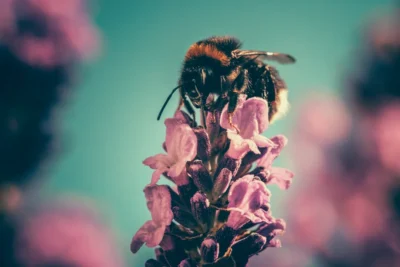Believe it or not, weather has a profound impact on honey bees and significantly influences various aspects of beekeeping practices. Bees are highly sensitive to environmental conditions, and changes in weather patterns can affect their behavior, productivity, and overall well-being.
One of the most critical weather factors for honey bees is temperature. Bees are ectothermic, meaning their body temperature is regulated by the external environment. Extreme temperatures, whether too hot or too cold, can be detrimental to bee colonies. Cold temperatures can slow down bees’ metabolic processes, making it challenging for them to forage and perform essential tasks. On the other hand, excessive heat can lead to dehydration and stress, affecting the overall health of the hive.
Rainfall also plays a crucial role in beekeeping. In western Washington this is one of our biggest challenges. While bees need water for various activities, such as cooling the hive and diluting honey for consumption, excessive rainfall can be problematic. Heavy rains may restrict foraging opportunities and make it challenging for bees to collect nectar and pollen. Moreover, damp conditions within the hive can lead to the growth of molds and fungi, posing a threat to bee health. It is possible for a hive to drown if not properly taken care of by the beekeeper.
Wind is another weather element that beekeepers need to consider. Strong winds can disrupt bees’ flight patterns, making it difficult for them to navigate and return to the hive. It can also damage the physical structure of the hive, potentially leading to the loss of bees and honey.
Seasonal changes, particularly the transition from winter to spring, have a significant impact on honey bee colonies. During winter, bees form a cluster to conserve heat and survive the cold. In spring, they become more active and start foraging for nectar and pollen. However, if temperatures fluctuate unpredictably during this critical period, it can disrupt the natural progression of the hive, affecting brood development and honey production.
Beekeepers must adapt their practices based on weather conditions to ensure the well-being of their colonies. Monitoring weather forecasts allows beekeepers to make informed decisions about hive management, such as providing supplemental feeding during periods of scarcity or ensuring adequate ventilation during heatwaves. Additionally, beekeepers may need to take protective measures, such as insulating hives in winter or securing them against strong winds.
In conclusion, weather has a multifaceted impact on honey bees and beekeeping practices. Beekeepers must be vigilant and responsive to changing weather conditions to promote the health and productivity of their colonies. By understanding and adapting to the challenges posed by the elements, beekeepers can contribute to the sustainability of honey bee populations and the vital role they play in pollination and ecosystem health.




